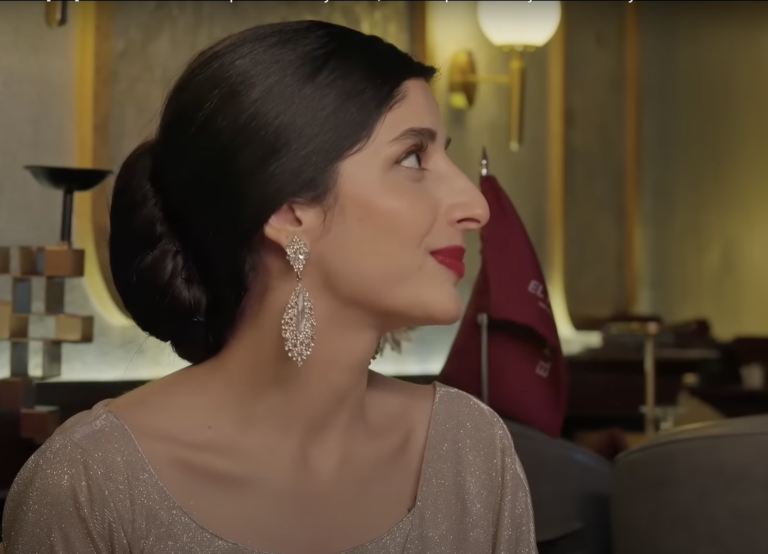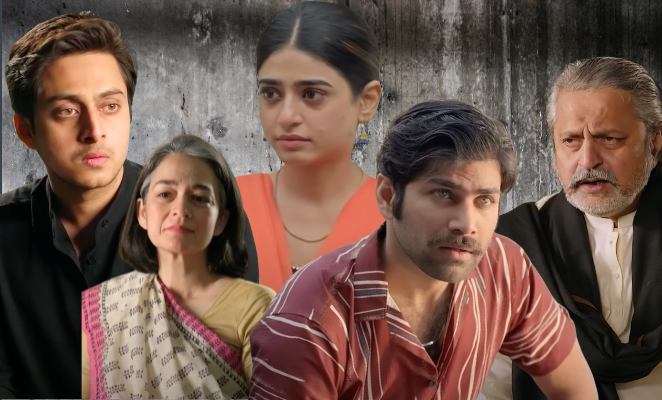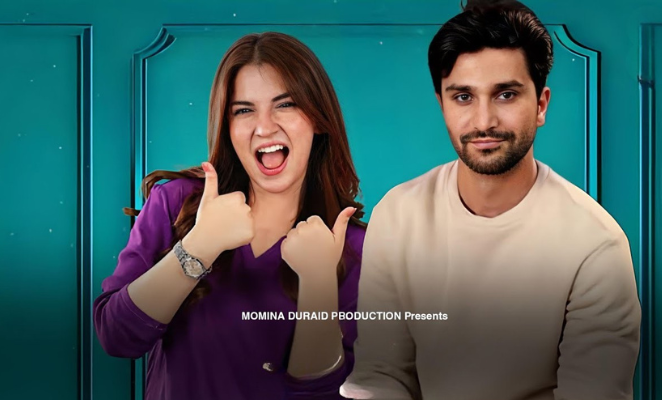Lo dekh lo aapna ghar. Koi nahi aaya. Na chor, na billi ka baccha.
The prodigal son returns! It seems we’ve now transitioned to reconciliation, to some form of closure.
Ten weeks in, Firaaq doesn’t cease to surprise me. Let me begin by reiterating, I have no problems with the acting (all of the actors are beyond reproach even the younger ones, moreover, I’ve been very open and accepting of the newcomer, Cybil Chaudhary, despite popular opinions), nor do I have any concerns about direction (Aabis Raza is on top of his game, perhaps, even better than Ehteshamuddin for Sadqay Tumharay), at the same time I’ve been floored once too often by the exceptional cinematography, crisp editing, and excellent use of background score (maybe a bit too much at places), so, I wonder like you what it is that’s off?
But before I get to that, let me pose a few questions:
Is Imroze picking a fight with Rumi over a misunderstanding not confrontation? How is it not, I ask you?
If doubting Imroze’s faith in Paiman, questioning Rumi’s involvement in the narrative, and asking why Sara reacted the way she did to Shams’ accusations is not about relationships, then, what – pray tell (preferably with no cheek) – is?
Is Paiman wanting to escape, Sara wanting a family, and Shams’ questioning his marhoom Abba-ji’s antics if only to conqueror his demons not about freedom?
What about Maa-jee, constantly at loggerheads with Haider, with Shams, with Paiman, are these not moments of rupture?
And finally, Shams’ return, is that not a step towards reconciliation?
Moments, relationships, freedom, confrontation, rupture, and reconciliation, like a circle we keep coming back to one or more of these themes. Whether the story has been seeping through a leaky cauldron or better yet been revealed to a select few amongst us (because as much as I see repetitive themes I’m not sure where Firaaq is headed, hence, the surprise!), point is, has it been evocatively expressed, both in the drama and in its many reviews?
Now, for some of us, three paragraphs for three episodes might suffice for a good review with andazas that are not galat. For others, thirty paragraphs on one episode might begin to touch the surface of what a good review should be. Between that three and thirty, there’s a large disconnect between good viewing and good reviewing. Good reviews are not about andazas and what’ll happen next rather they’re about synthesis and flow, about thoughts and being caught up in the moment, about enjoying the ride and the euphoria, about sharing said andazas, and then some. So, if sharing the themes that Firaaq consistently draws upon, as leaky as that cauldron might be, is about right and wrong, then, I’d like to bring you back to a space between that binary, the space where I’m at, and I hope you are too, because that is exactly where Firaaq is.
Firaaq isn’t about right or wrong, yes, there is as much right there as wrong, yet, it is about the journey, about the circumstances, and the consequences. Every character is on journey. Shams, for instance, is on a road that’ll lead him to forgiveness (for Maa-jee, for Abba-ji, for Haider, and maybe even himself) and also simultaneously acceptance (of Sara, of her needs, and of his fears). Similarly, Paiman is on a mission to grow as a person, as a daughter, as a sister, as a friend, and most importantly as a wife. A growth that she’ll encounter with tremendous change, and what is change but another way of phrasing rupture. Meanwhile, Imroze is on a road less travelled. His digression from a liberal, educated, and tolerant man into a suspicious, difficult, and inexplicable husband is a battle that rages deep within him.
Supporting these three characters are Sara, Rumi, Tabassum, and Haider.
Like the last four weeks, I’ll start with Uzma Gillani and Syed Mazhar. It’s no secret that I absolutely love the chemistry between these two, the comfort with which they interact – as Maa-jee gently touches Haider’s arm, as Haider mumbles his way to watching TV, as they share many a awkward silence – is what brings me back to Firaaq week after week. This is a coupling of chance and circumstance not of love or affection, but affection has grown and love has come from a commitment. The kind of commitment neither of the younger couples – Shams and Sara and Imroze and Paiman – are willing to make.
Inasmuch as this is a story about relationships, it is equally a story of juxtaposing said relationships. Maa-jee and Haider had a tumultuous marriage. Their’s was not a happy wedding. A bezaar aurat and a bekaar mard making a life together. Yet, they succeed and even though they aren’t the definition of thriving they’ve managed rather well. Their relationship has stood the test of time irrespective of their many differences. Can the same be said for Shams and Sara or Imroze and Paiman?
The former have separated so that they can figure things out, so that they may never fight again (to quote Sara). The latter haven’t even been married two months and the monster that is jealousy has slowly surfaced to the shore (along with disease). Is it not possible, then, that Firaaq is about comparing relationships – then and now? Why else would Maa-jee call Sara and tell her that koi bada tummy aamnay-saamnay na laye to tum saari umr khaafa rahe gaye.
From relationships we transition to confrontation. Imroze has had enough of his shukk, his bleeding nose, and most of all Rumi. So much so that he’s cut all contact with him. After a chillingly emotional conflict by the waterfront (rather scenic of Imroze, I have to admit), Rumi is no longer welcome in the doctor’s house, his life, and especially near his wife. The funny thing, though, is that Rumi actually enjoys spending time with Paiman as much as Paiman likes his company (and I know she only sees him as a friend). Do I see Paiman and Imroze as truly in love? No. Do I see Rumi and Paiman in love? No, but I see chemistry there, which I find lacking between the two leads. They look good together physically, Mohib is handsome man and Sanam is pretty girl but maybe there is more to come…
Since, we are on the subject of Rumi is he the Saif Ali Khan to Imroze’s Shah Rukh from Kal Ho Na Ho. Fess up, you know you’re thinking the same thing.
Finally, confrontation brings us to reconciliation or at least somewhere close. The sequences between Shams and Maa-jee/Haider were beautifully executed. I actually felt happy seeing Shams back if only for Tabassum. I liked the honesty that ensued and I hope to see how this track plays out with Sara back in the picture. So, what exactly is off? The last two weeks and all that talk about AIDS/HIV has left a bad taste in my mouth not so much at the suggestion but what actually ensued after. Akalmand ko ishara kaafi, as they say.
I think we’re back on track. A good episode with decent plot progression.
Till next week,
Rab Rakha
RB (Tweet me!)
P.S. A special thank you for the scene between Maa-jee and Haider on a bench by the water covered in a setting sun. Beautifully done!






 This summer, let your child explore,
This summer, let your child explore, 






 Saim
Saim 



